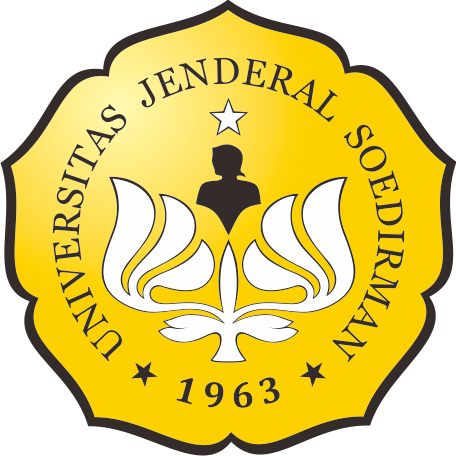ANALISIS VEGETASI KAWASAN KARST GOMBONG SELATAN KEBUMEN JAWA TENGAH
Abstract
Karst area is a well-developed porosity landscape with a specific condition as a result of soluble rock development through a process of karstification. The karst soil has low nutrients, but high calcium and magnesium content. Due to its unique environmental characteristics, karst vegetation differs from other areas. This study aimed to determine the community structure and species composition of vegetation in the karst area of Gombong Selatan and to compare the environmental factors affecting the plant of the karst area. This study was conducted in the border of Watukelir and Pakuran Villages. The method was a survey with sampling quadrat sizes used of 10 x 10 m for trees, 5 x 5 m for saplings, and 2 x 2 m for understorey vegetation. The variables observed were plant species and number of trees, saplings, and understorey. The environmental factors measured were air temperature, humidity, soil pH, and soil moisture. Data were analyzed using Importance Value Index (IVI), Shannon-Wienner Diversity Index (H’), Evenness Index (E), and Similarity Index (IS). The results showed there were 22 species of understoreys, five species of saplings, and seven species of trees. The understoreys were found dominated by Axonopus compressus dan Cyperus rotundus, in the other category, Tectona grandis and Albizia chinensis were dominated saplings and trees. Humidity and soil moisture were suggested the important environmental factors for plant diversity in karst area of Gombong Selatan
Keywords
Full Text:
PDFReferences
Atmosuseno BS. 1998. Budidaya, kegunaan, dan prospek sengon. Jakarta: Penebar Swadaya.
Ford DC, Williams PW. 1989. Karst geomorphology and hydrology. London: Chapman & Hall. https://doi.org/10.1007/978-94-011-7778-8
Ko RKT. 2003. Keanekaragaman hayati kawasan karst. Kumpulan makalah ilmiah. Bogor: Tidak dipublikasikan.
Leps J. 2005. Diversity and Ecosystem Function. Australia: Blackwell Publishing.
Loveless AR. 1989. Prinsip biologi tumbuhan untuk daerah tropik. Jakarta: Gramedia.
Ludwig JA, Reynold JF. 1988. Statistical Ecology. New York: John Wiley and Sons.
Magurran AE. 1988. Measuring Biological Diversity. United Kingdom: TJ International.
Mahfudz, Fauzi MA, Hakim L, Prastyono, Supriyanto H. 2004. Sekilas Jati. Yogyakarta: Pusat Penelitian dan Pengembangan Bioteknologi dan Pemuliaan Tanaman Hutan.
Marwiyati, Qayim I, Purwanto Y. 2012. Ekologi Vegetasi Dan Etnobotani Kawasan Karst Gunung Cibodas, Ciampea, Bogor [skripsi]. Bogor: Institut Pertanian Bogor.
Osuji CC, Belford E, Baffoe BF. 2017. Axonopus compressus: A Resilient Phytoremidiator of Waste Engine Oil Contaminated Soil. International Journal of Plant & Soil Science. 14(2):1–10. https://doi.org/10.9734/IJPSS/2017/29671
Pranasari RA, Nurhidayati T, Purwani I. 2012. Persaingan Tanaman Jagung (Zea mays) dan Rumput Teki (Cyperus rotundus) pada Pengaruh Cekaman Garam (NaCl). Jurnal Sains dan Seni ITS, 1(1): E54–E57
Priyanti, Wijayanti F, Rizki M. 2011. Keanekaragaman dan Potensi Tumbuhan di Hutan Karst Gombong Jawa Tengah. Berkas Penelitian Hayati Edisi Khusus: 5A. p. 79–81.
Santoso HB. 1992. Budidaya Sengon. Yogyakarta: Kanisius.
Sarwanto D, Tuswati SE, Widodo P. 2015. Keragaman dan Produktivitas Hijauan Pakan Indigenous pada Berbagai Tingkat Kerapatan Vegetasi di Pegunungan Kapur Gombong Selatan. Biosfera. 32(3):147–153.
Setiadi D. 2005. Keanekaragaman Spesies Tingkat Pohon di Taman Wisata Alam Ruteng, Nusa Tenggara Timur. Biodiversitas. 6(2):118–122.
Soerianegara I, Indrawan A. 1982. Ekologi Hutan Indonesia. Bogor: Departemen Managemen Hutan Fakultas Kehutanan Institut Pertanian Bogor.
Sugita YDBW, Zahida F, Pramana Y. 2015. Pemetaan Flora dan Pola Pemanfaatan Lahan Pertanian di Sekitar Daerah Gua Ngguwo Gunungkidul sebagai Daerah Ekowisata. Yogyakarta: Program Studi Teknobiologi Lingkungan, Fakultas Teknobiologi.
Sumarna Y. 2001. Bududaya Jati. Jakarta: Penebar Swadaya.
Suryatmojo H. 2002. Konservasi Tanah di Kawasan Karst Gunung Kidul [skripsi]. Yogyakarta: Program Studi Konservasi Suberdaya Hutan Fakultas Kehutanan UGM
Tanjung SD. 2004. Kebijakan Konsevasi Biodiversitas Kawasan Karst. Makalah Workshop Nasional Pengelolaan Kawasan Karst. Jakarta: Departemen Energi dan Sumber Daya Mineral.
Van Der Pijl L. 1982. Principles of dispersal in higher plants. Berlin. https://doi.org/10.1007/978-3-642-87925-8
Vermeulen J, Whitten T. 1999. Biodiversity and Cultural Property in the Management of Limestone. Washington DC: The World Bank. https://doi.org/10.1596/0-8213-4508-7
Whitten T, Soeriaatmadja RE, Suraya AA. 1999. Ekologi Jawa dan Bali. Jakarta: Prenhallindo.
Widiyanti P, Kusmana C. 2014. Komposisi Jenis dan Struktur Vegetasi pada Kawasan Karst Gunung Cibodas, Kecamatan Ciampea, Kabupaten Bogor. Jurnal Sivikultur Tropika. 05(2):69–76.
Williams P. 2008. World heritage caves and karst. Gland, Switzerland: IUCN.
Zuellig RE, Bruce JF, Stogner RW. 2010. Temporal Change ini Biological Community Structure ini The Fountain Creek Basin, Colorado, 2001–2008. Virginia: U.S. Geological Survey.
Clean and compress CSS files for an optimized website. Try the free online tool by HTML Cleaner.
Article Reads
Total: 4950 Abstract: 2809 PDF: 2141Refbacks
- There are currently no refbacks.

This work is licensed under a Creative Commons Attribution-ShareAlike 4.0 International License.
This website is maintained by:
Bio Publisher
The Faculty of Biology Publishing
Faculty of Biology
Universitas Jenderal Soedirman
Jalan dr. Suparno 63 Grendeng
Purwokerto 53122
Telephone: +62-281-625865
Email: biologi@unsoed.ac.id
T his website uses:
OJS | Open Journal System
A free journal management and publishing system that has been developed by the PKP (Public Knowledge Project) version 2.4.8.0.
All article content metadata are registered to:
Crossref
An official nonprofit Registration Agency of the International Digital Object Identifier (DOI) Foundation.
Articles in this journal are indexed by:









